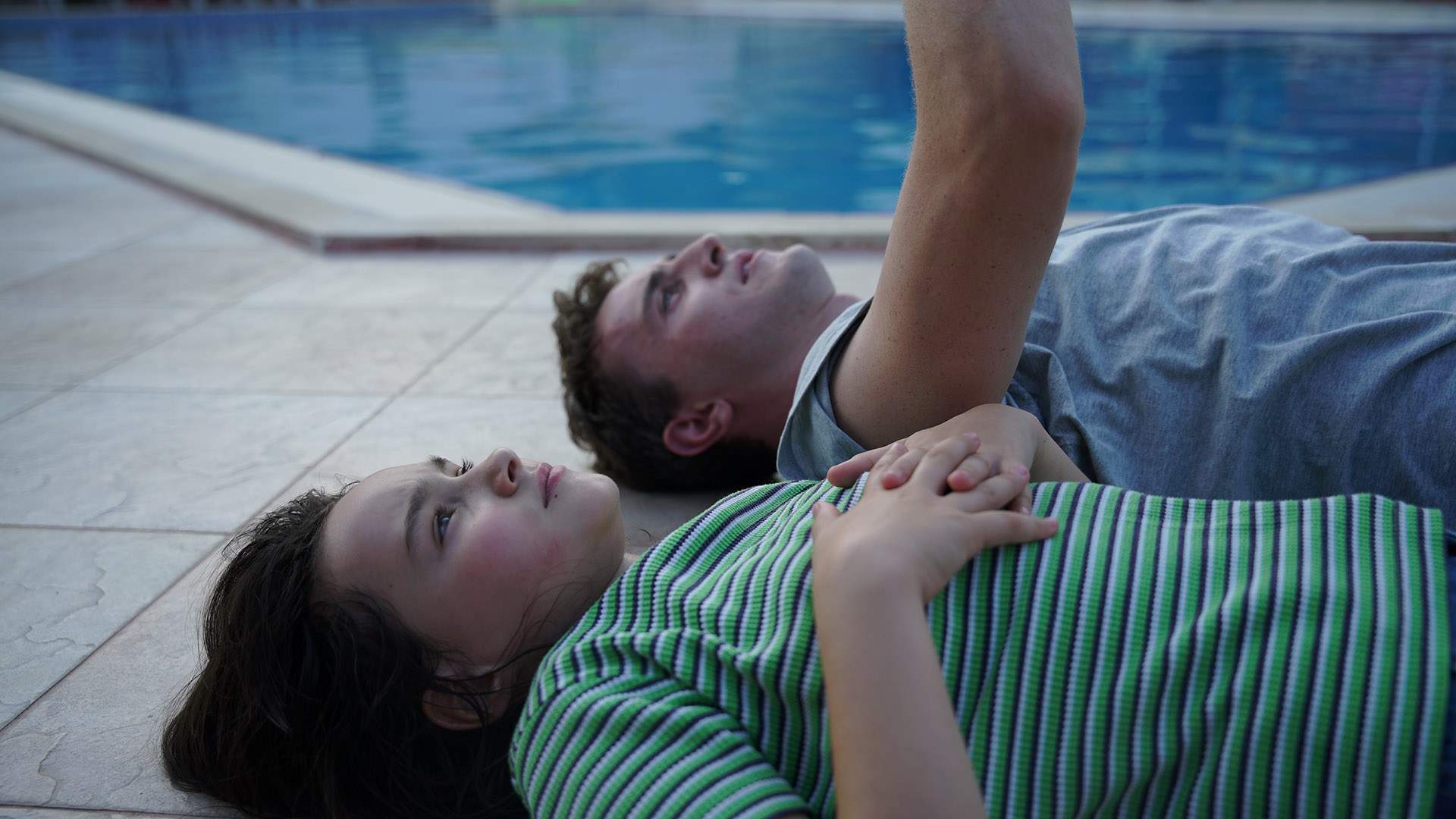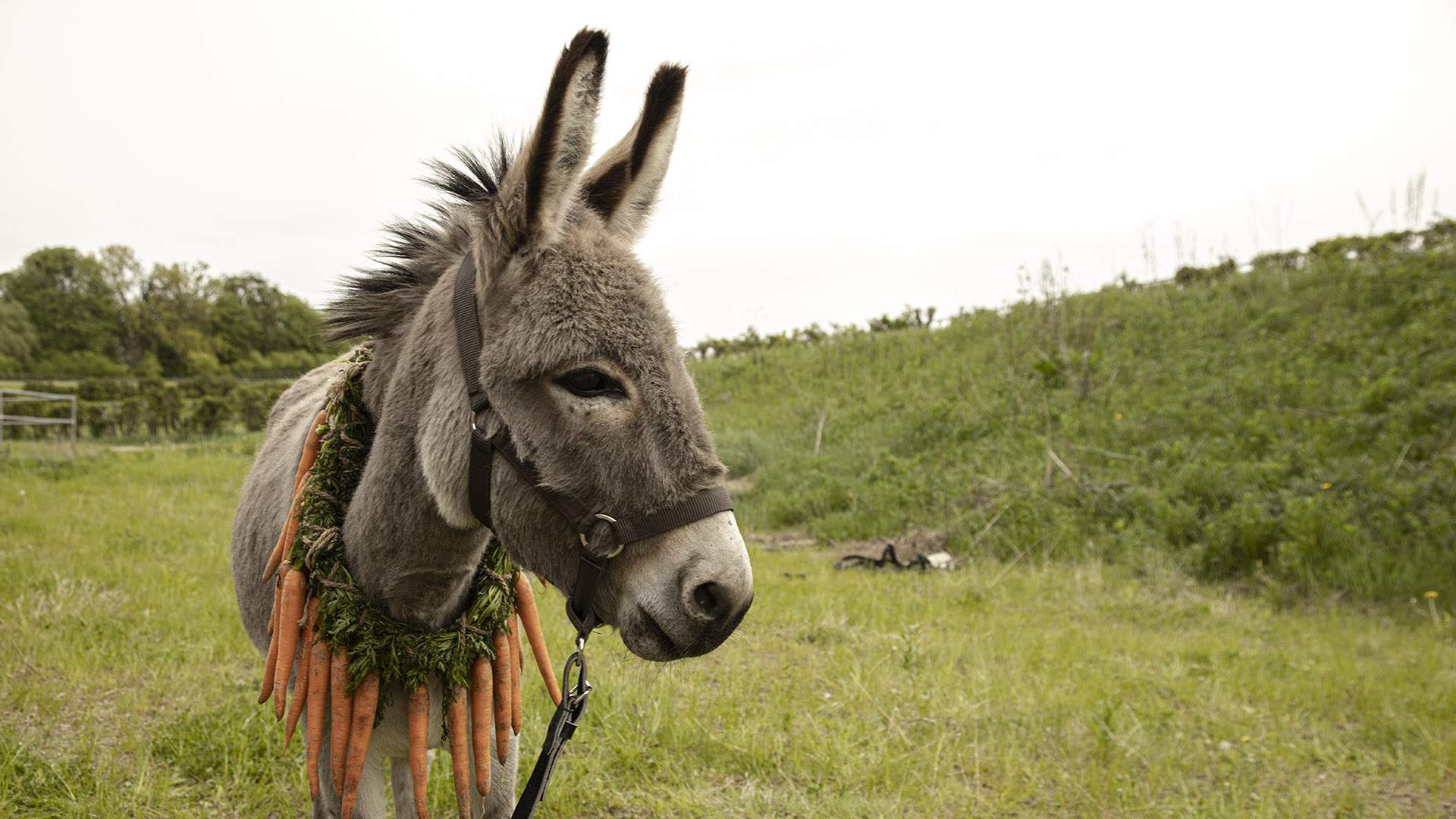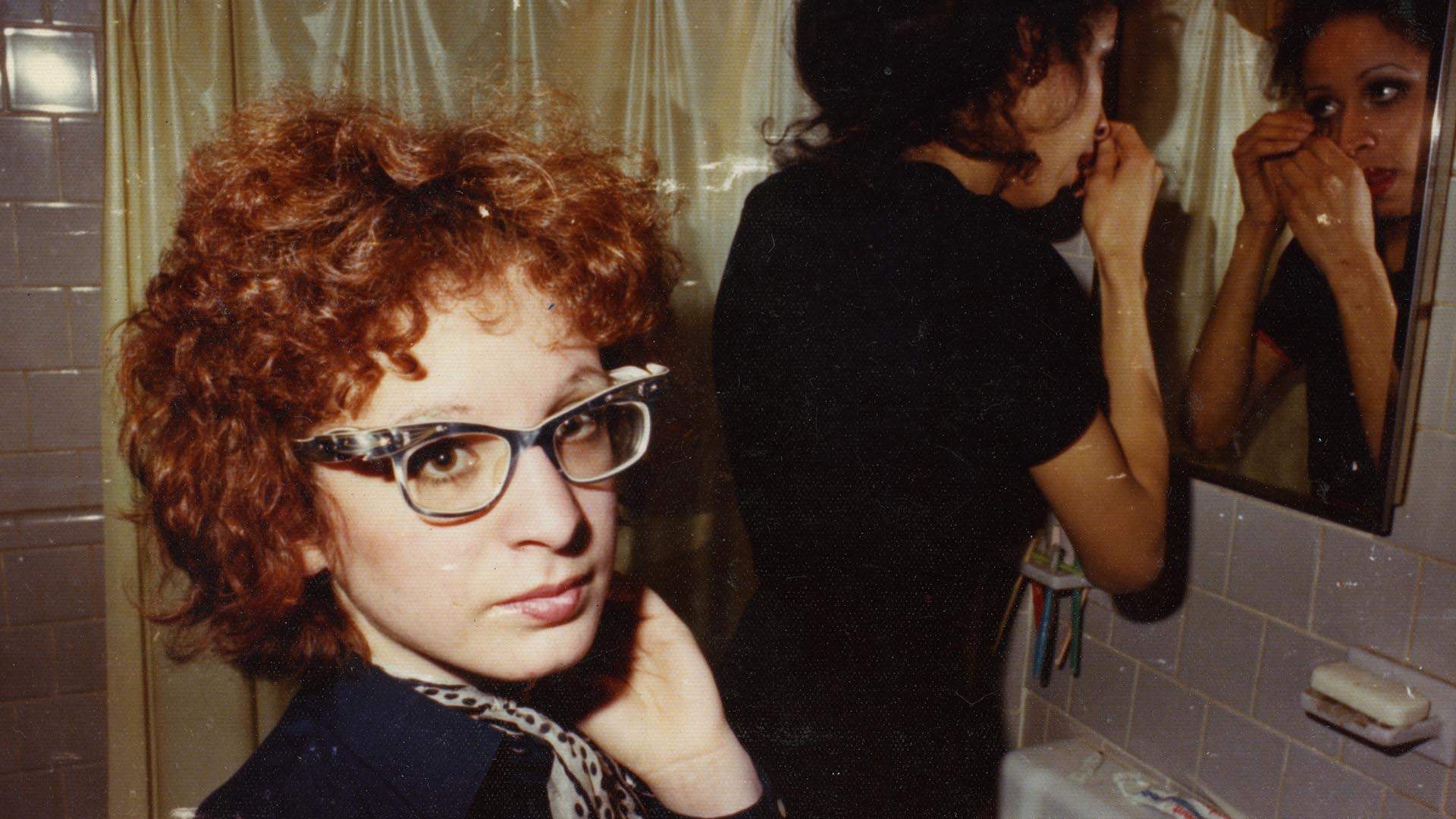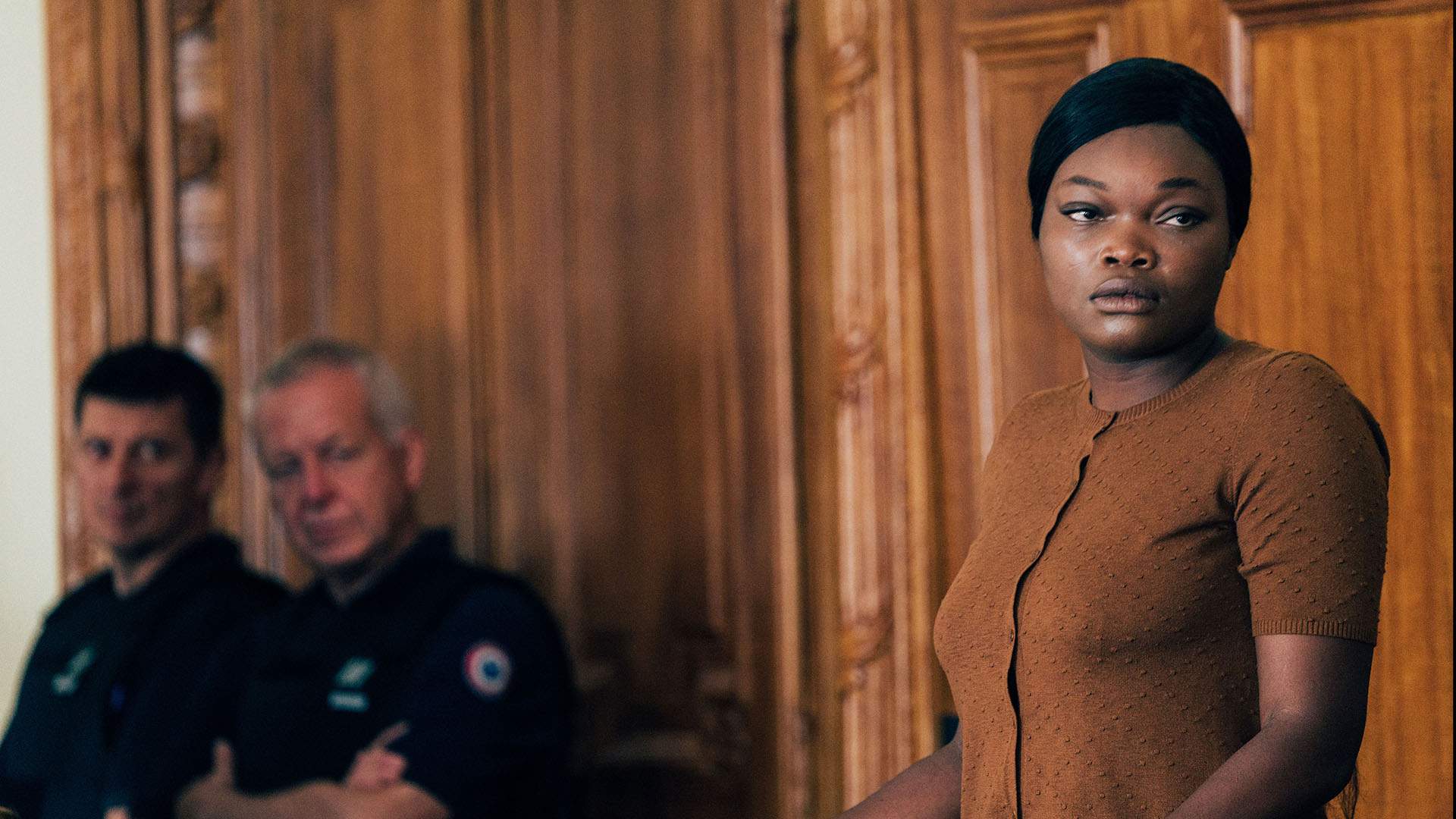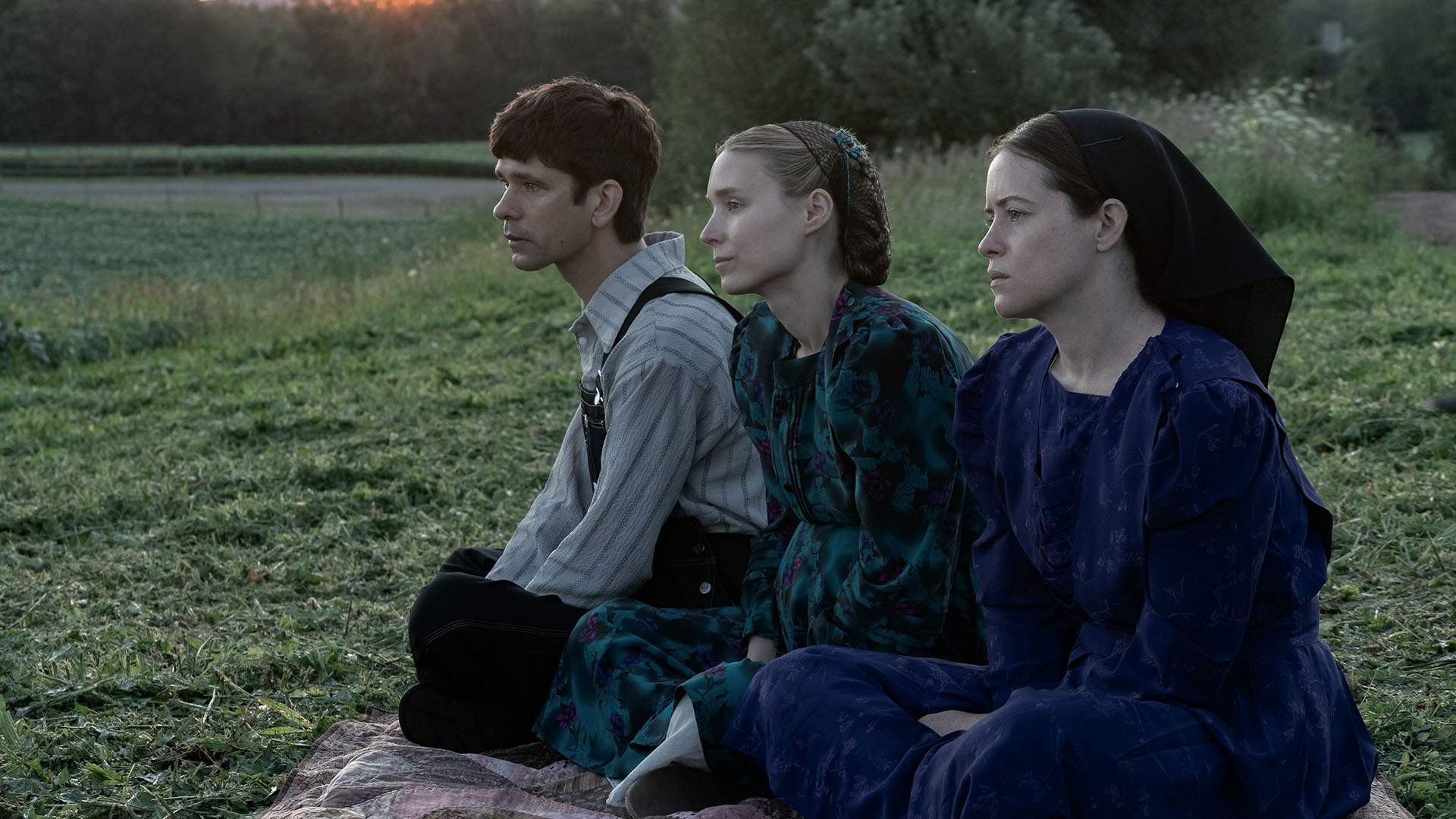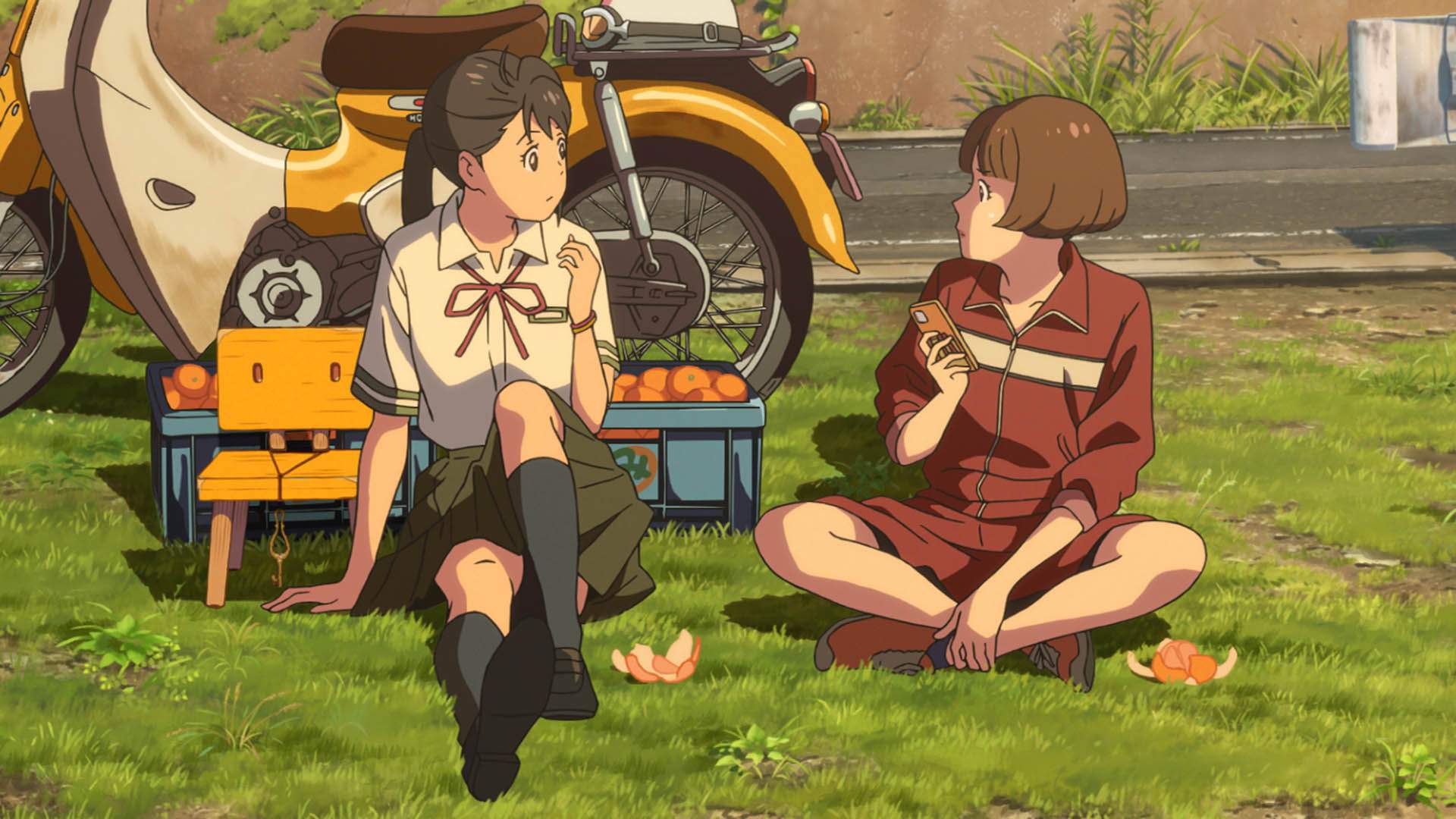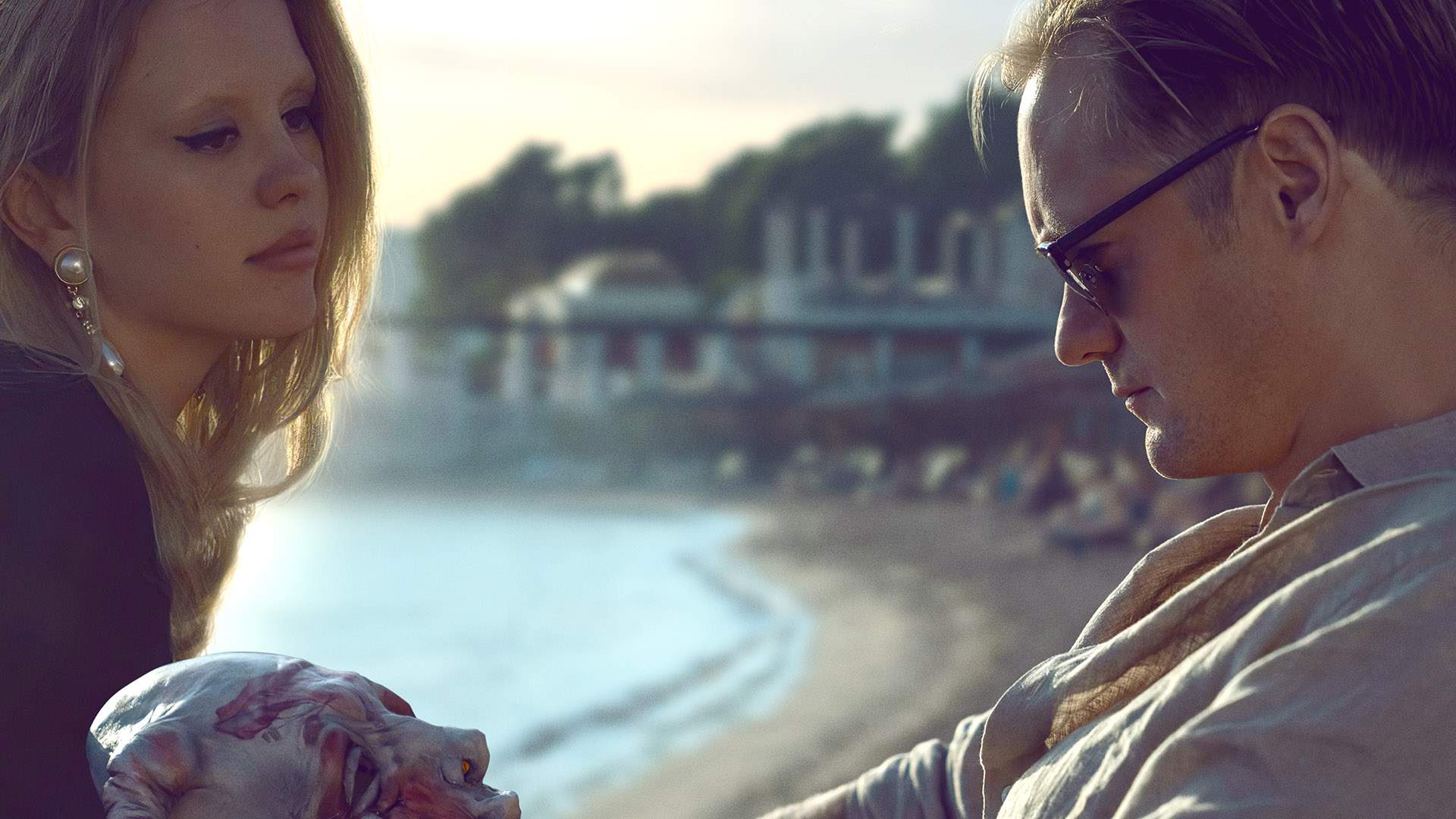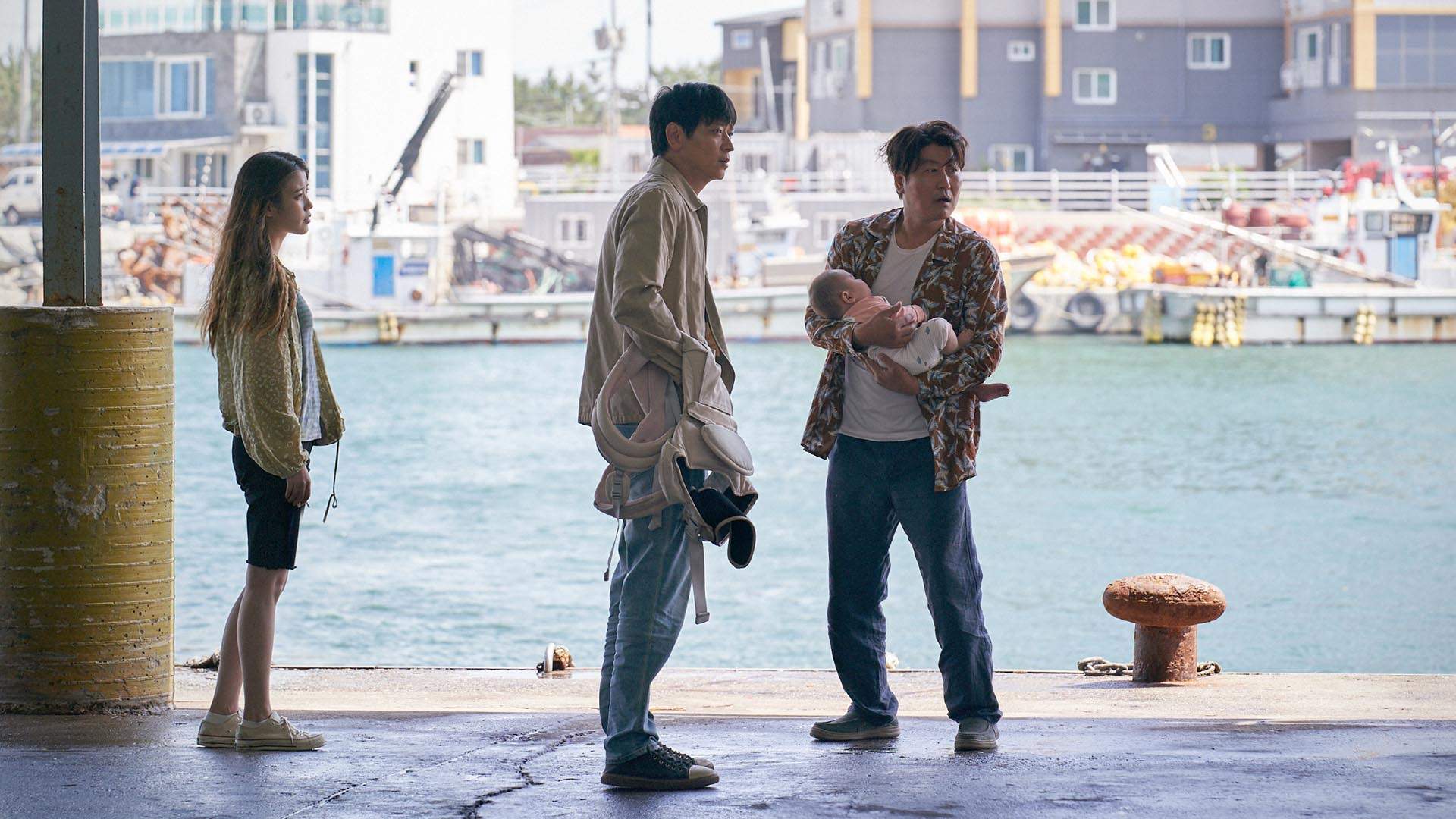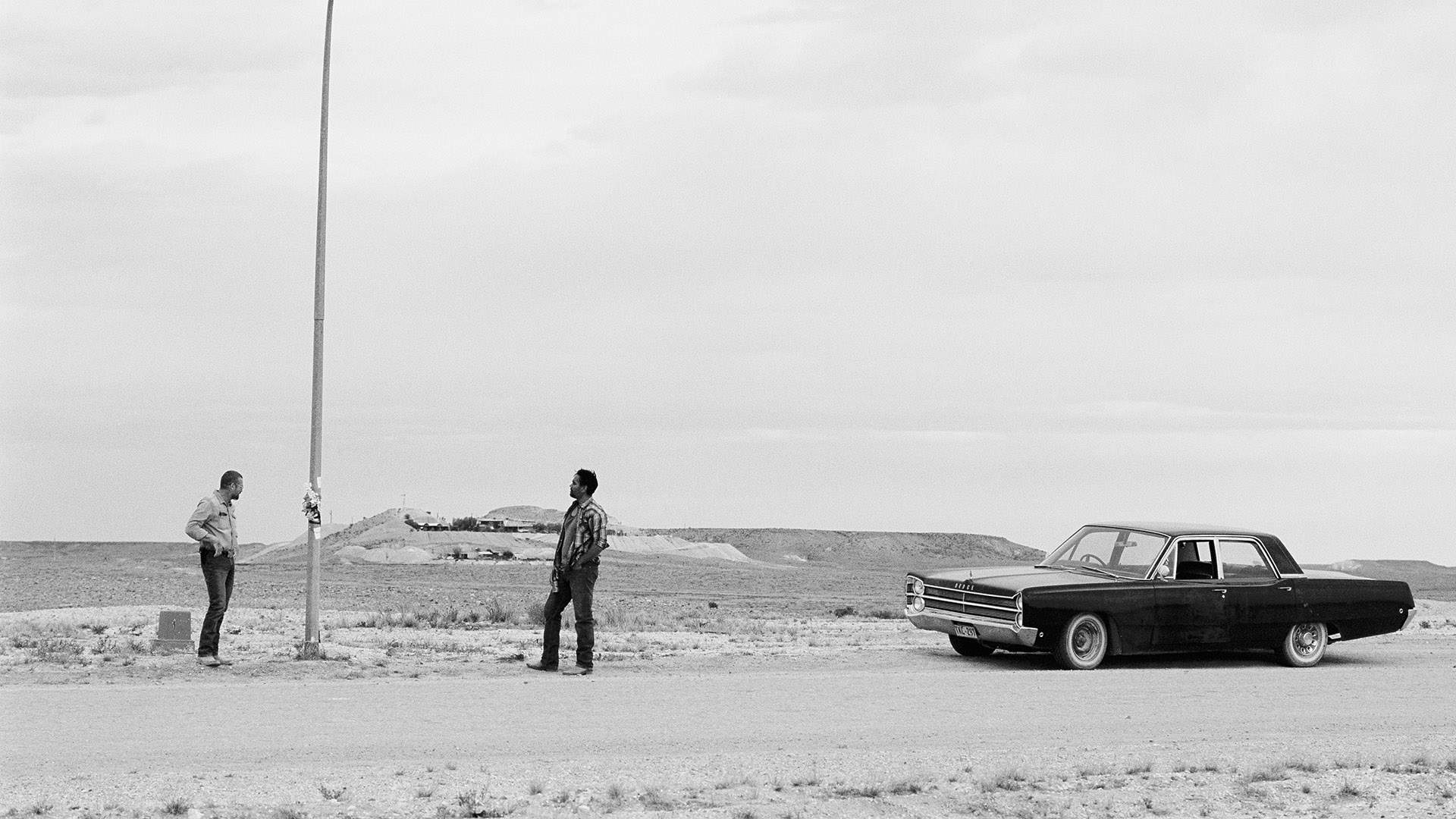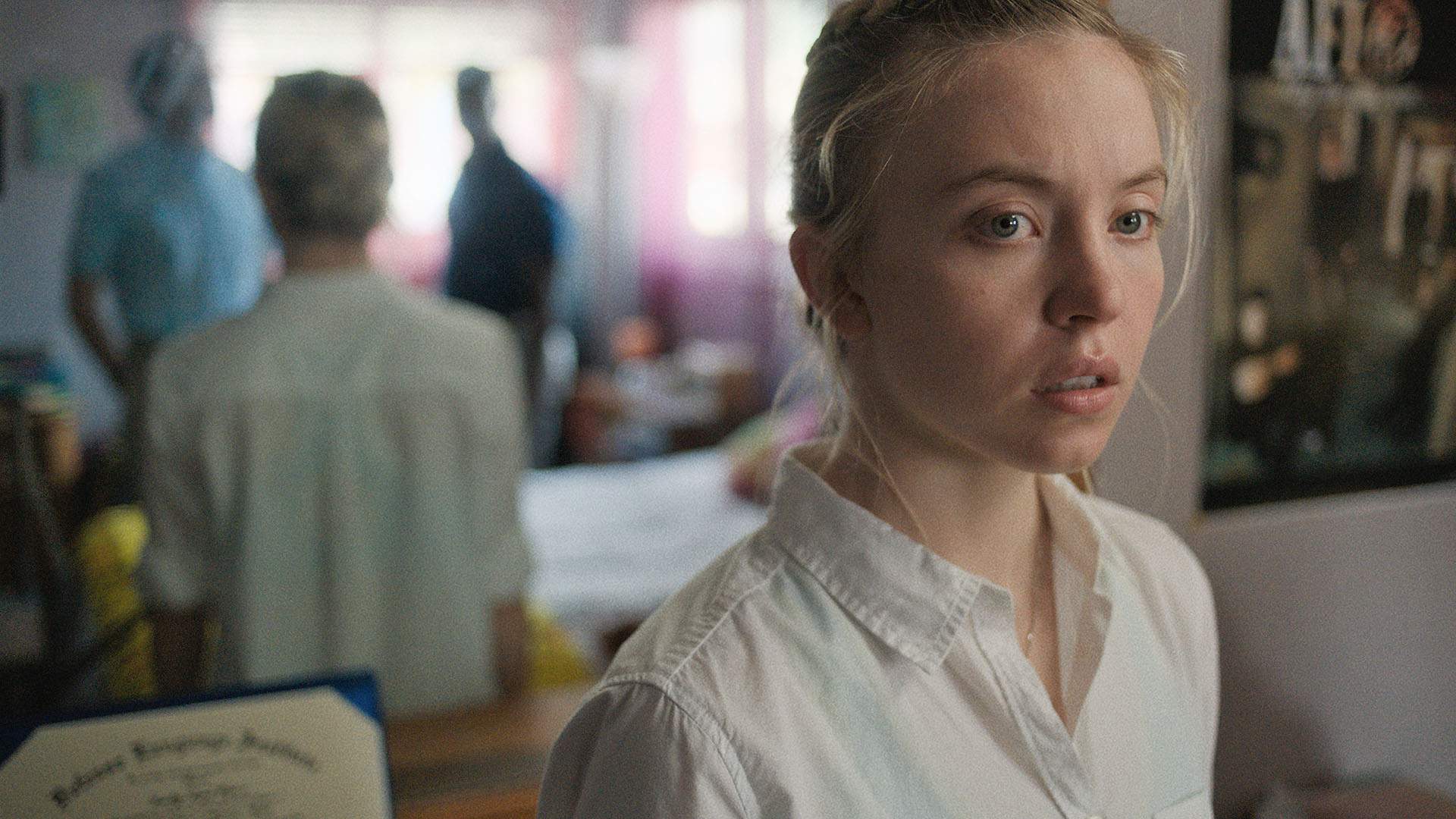The 15 Best Films of 2023 So Far
Paul Mescal, a Sardinian donkey, all the Spider-Men, Ari Aster's latest nightmare: they all featured in the best of the best flicks from 2023's first six months.
One of the best films to hit cinemas in 2023 so far gets a song stuck in viewers' heads like it's been slung there with the stickiest of webs. Just try to watch a Spider-Man movie — any Spider-Man movie, but preferably the stunning Spider-Verse movies — and not get the cartoon theme song lodged in your brain. You can't. It's impossible. Tweak the earworm of a track's lyrics, though, and you have the perfect description of the first six months of this year at the pictures: the greatest features to flicker through projectors truly did whatever movies can.
Among 2023's best films so far, one made the connection between a parent and child feel so aching new yet so deeply relatable that you might've convinced yourself that you lived this plot yourself. Another hung out with a Sardinian donkey to muse on the fragility of life, plus the way that all creatures great and small that aren't human are so often disregarded. Some rightly garnered awards for exploring close bonds and impassioned fights; others hopped all over Japan, or Korea, or wherever on the globe that John Wick has a battle to wage. One made the Australian outback look otherworldly — and another toyed with reality on multiple levels, and in a stunning fashion.
They're some of the films that've shone brightly at picture palaces this year — some releasing last year elsewhere, but only debuting Down Under in 2023; some so shiny and brand-new that they've only just reached cinemas. More than 15 ace movies have graced the silver screen over the past six months, of course, but if you only have time to watch or rewatch the absolute best 15, we've picked them. Happy midyear viewing.

AFTERSUN
The simplest things in life can be the most revealing, whether it's a question asked of a father by a child, an exercise routine obeyed almost mindlessly or a man stopping to smoke someone else's old cigarette while wandering through a holiday town alone at night. The astonishing feature debut by Scottish writer/director Charlotte Wells, Aftersun is about the simple things. Following the about-to-turn-31 Calum (Paul Mescal, The Lost Daughter) and his daughter Sophie (debutant Frankie Corio) on vacation in Turkey in the late 90s, it includes all of the above simple things, plus more. It tracks, then, that this coming-of-age story on three levels — of an 11-year-old flirting with adolescence, a dad struggling with his place in the world, and an adult woman with her own wife and family grappling with a life-changing experience from her childhood — is always a movie of deep, devastating and revealing complexity.
Earning the internet's Normal People-starring boyfriend a Best Actor Oscar nomination, and deservedly so, Aftersun is a reflective, ruminative portrait of heartbreak. It's a quest to find meaning in sorrow and pain, too, and in processing the past. Wells has crafted a chronicle of interrogating, contextualising, reframing and dwelling in memories; an examination of leaving and belonging; and an unpacking of the complicated truths that a kid can't see about a parent until they're old enough to be that parent. Breaking up Calum and Sophie's sun-dappled coastal holiday with the older Sophie (Celia Rowlson-Hall, Vox Lux) watching camcorder footage from the trip, sifting through her recollections and dancing it out under a nightclub's strobing lights in her imagination, this is also a stunning realisation that we'll always read everything we can into a loved one's actions with the benefit of hindsight, but all we ever truly have is the sensation that lingers in our hearts and heads.
Read our full review.

EO
David Attenborough's nature documentaries are acclaimed and beloved viewing, including when they're recreating dinosaurs. Family-friendly fare adores cute critters, especially if they're talking as in The Lion King and Paddington movies. The horror genre also loves pushing animals to the front, with The Birds and Jaws among its unsettling masterpieces. Earth's creatures great and small are all around us on-screen, and also off — but in EO, a donkey drama by Polish filmmaker Jerzy Skolimowski (11 Minutes), humanity barely cares. The people in this Oscar-nominated mule musing might watch movies about pets and beasts. They may have actively shared parts of their own lives existence the animal kingdom; some, albeit only a rare few, do attempt exactly that with this flick's grey-haired, white-spotted, wide-eyed namesake. But one of the tragedies at the heart of this adventure is also just a plain fact of life on this pale blue dot while homo sapiens reign supreme: that animals are everywhere all the time but hardly anyone notices.
EO notices. Making his first film in seven years, and co-writing with his wife and producer Ewa Piaskowska (Essential Killing), Skolimowski demands that his audience pays attention. This is both an episodic slice-of-life portrait of EO the donkey's days and a glimpse of the world from his perspective — sometimes, the glowing and gorgeous cinematography by Michal Dymek (Wolf) takes in the Sardinian creature in all his braying, trotting, carrot-eating glory; sometimes, it takes on 'donkey vision', which is just as mesmerising to look at. Skolimowski gets inspiration from Robert Bresson's 1966 feature Au Hasard Balthazar, too, a movie that also follows the life of a hoofed, long-eared mammal. Like that French great, EO sees hardship much too often for its titular creature; however, even at its most heartbreaking, it also spies an innate, immutable circle of life.
Read our full review.

CLOSE
When Léo (debutant Eden Dambrine) and Rémi (fellow first-timer Gustav De Waele) dash the carefree dash of youth in Close's early moments, rushing from a dark bunker out into the sunshine — from rocks and forest to a bloom-filled field ablaze with colour, too — this immediately evocative Belgian drama runs joyously with them. Girl writer/director Lukas Dhont starts his sophomore feature with a tremendous moment, one that's arresting to look at and to experience. The petals pop; the camera tracks, rushes and flies; the two 13-year-olds are as exuberant and at ease as they're ever likely to be in their lives. They're sprinting because they're happy and playing, and because summer in their village — and on Léo's parents' flower farm — is theirs for the revelling in. They don't and can't realise it because no kid does, but they're also bolting from the bliss that is their visibly contented childhood to the tussles and emotions of being a teenager.
Close's title does indeed apply to its two main figures; when it comes to adolescent friendships, they couldn't be tighter. As expressed in revelatory performances by Dambrine and De Waele, each of whom are genuine acting discoveries — Dhont spotted the former on a train from Antwerp to Ghent — these boys have an innocent intimate affinity closer than blood. They're euphoric with and in each other's company, and the feature plays like that's how it has always been between the two. They've also never queried or overthought what their connection means. Before high school commences, Close shows the slumber parties, and the shared hopes and dreams. It sits in on family dinners, demonstrating the ease with which each is a part of the other's broader lives amid both sets of mums and dads; Léo's are Nathalie (Léa Drucker, Custody) and Yves (Marc Weiss, Esprits de famille), Rémi's are Sophie (Émilie Dequenne, An Ordinary Man) and Peter (Kevin Janssens, Two Summers). The film adores their rapport like a summer day adores the breeze, and conveys it meticulously and movingly. Then, when girls in Léo and Rémi's grade ask if the two are a couple, it shows the heartache and heartbreak of a boyhood bond dissolving.
Read our full review.

ALL THE BEAUTY AND THE BLOODSHED
With photographer Nan Goldin at its centre, the latest documentary by Citizenfour Oscar-winner Laura Poitras is a film about many things, to deeply stunning and moving effect. In this Oscar-nominated movie's compilation of Goldin's acclaimed snaps, archival footage, current interviews, and past and present activism, a world of stories flicker — all linked to Goldin, but all also linking universally. The artist's bold work, especially chronicling LGBTQIA+ subcultures and the 80s HIV/AIDS crisis, frequently and naturally gets the spotlight. Her complicated family history, which spans heartbreaking loss, haunts the doco as it haunts its subject. The rollercoaster ride that Goldin's life has taken, including in forging her career, supporting her photos, understanding who she is and navigating an array of personal relationships, cascades through, too. And, so do her efforts to counter the opioid epidemic by bringing one of the forces behind it to public justice.
Revealing state secrets doesn't sit at the core of the tale here, unlike Citizenfour and Poitras' 2016 film Risk — one about Edward Snowden, the other Julian Assange — but everything leads to the documentary's titular six words: All the Beauty and the Bloodshed. They gain meaning in a report spied late about the mental health of Goldin's older sister Barbara, who committed suicide at the age of 18 when Goldin was 11, and who Goldin contends was just an "angry and sexual" young woman in the 60s with repressed parents. A psychiatrist uses the eponymous phrase to describe what Barbara sees and, tellingly, it could be used to do the same with anyone. All the Beauty and the Bloodshed is, in part, a rebuke of the idea that a teenager with desires and emotions is a problem, and also a statement that that's who we all are, just to varying levels of societal acceptance. The film is also a testament that, for better and for worse, all the beauty and the bloodshed we all witness and endure is what shapes us.
Read our full review.

SAINT OMER
In 2016, a French documentarian with Senegalese heritage attended the trial of a Senegalese French PhD student who confessed to killing her 15-month-old daughter, who was fathered by a white partner, by leaving her on the beach to the mercy of the waves at Berck-sur-Mer. The filmmaker was fixated. She describes it as an "unspeakable obsession". She was haunted by questions about motherhood, too — her mum's and her own, given that she was a young mother herself as she sat in the courtroom. That story is the story of how Saint Omer came to be, and also almost exactly the tale that the piercing drama tells. In her first narrative film after docos We and La Permanence, writer/director Alice Diop focuses on a French author and literature professor with a Senegalese background who bears witness to a trial with the same details, also of a Senegalese French woman, for the same crime. Saint Omer's protagonist shares other traits with Diop as she observes, too, and watches and listens to research a book.
A director riffing on their own experience isn't novel, but Saint Omer is strikingly intimate and authentic because it's the embodiment of empathy in an innately difficult situation. It shows what it means to feel for someone else, including someone who has admitted to a shocking crime, and has been made because Diop went through that far-from-straightforward process and was galvanised to keep grappling with it. What a deeply emotional movie this 2022 Venice International Film Festival Grand Jury Prize-winning feature is, understandably and unsurprisingly. What a heartbreaking and harrowing work it proves as well. Saint Omer is also an astoundingly multilayered excavation of being in a country but never being seen as truly part it, and what that does to someone's sense of self, all through Fabienne Kabou's complicated reality and Laurence Coly's (Guslagie Malanda, My Friend Victoria) fictionalised scenario.
Read our full review.

WOMEN TALKING
Get Rooney Mara, Claire Foy, Jessie Buckley, Frances McDormand and more exceptional women in a room, point a camera their way, let the talk flow: Sarah Polley's Women Talking does just that, and this year's Best Adapted Screenplay Oscar-winner is phenomenal. The actor-turned-filmmaker's fourth effort behind the lens after 2006's Away From Her, 2011's Take This Waltz and 2012's Stories We Tell does plenty more, but its basic setup is as straightforward as its title states. Adapted from Miriam Toews' 2018 novel of the same name, this isn't a simple or easy film, however. That book and this feature draw on events in a Bolivian Mennonite colony from 2005–9, where a spate of mass druggings and rapes of women and girls were reported at the hands of some of the group's men. In a patriarchal faith and society, women talking about their experiences is a rebellious, revolutionary act anyway — and talking about what comes next is just as charged.
"The elders told us that it was the work of ghosts, or Satan, or that we were lying to get attention, or that it was an act of wild female imagination." That's teenage narrator Autje's (debutant Kate Hallett) explanation for how such assaults could occur and continue, as offered in Women Talking's sombre opening voiceover. Writing and helming, Polley declares her feature "an act of female imagination" as well, as Toews did on the page, but the truth in the movie's words is both lingering and haunting. While the film anchors its dramas in a specific year, 2010, it's purposefully vague on any details that could ground it in one place. Set within a community where modern technology is banned and horse-drawn buggies are the only form of transport, it's a work of fiction inspired by reality, rather than a recreation. Whether you're aware of the true tale behind the book going in or not, this deeply powerful and affecting picture speaks to how women have long been treated in a male-dominated world at large — and what's so often left unsaid, too.
Read our full review.

TÁR
The least surprising aspect of Tár is also its most essential: Cate Blanchett being as phenomenal as she's ever been, plus more. The Australian Nightmare Alley, Thor: Ragnarok, Carol and The New Boy actor — "our Cate", of course — unsurprisingly scored an Oscar nomination as a result. Accolades have been showered her way since this drama about a cancelled conductor premiered at the 2022 Venice International Film Festival (the prestigious event's Best Actress gong was the first of them), deservedly so. Blanchett is that stunning in Tár, that much of a powerhouse, that adept at breathing life and complexity into a thorny figure, and that magnetic and mesmerising. Even when she hasn't been at her utmost on rare past occasions or something she's in hasn't been up to her standards — see: Don't Look Up for both — she's a force that a feature gravitates around. Tár is astonishing itself, too, but Blanchett at her finest is the movie's rock, core and reason for being.
Blanchett is spectacular in Tár, and she also has to be spectacular in Tár — because Lydia Tár, the maestro she's playing, earns that term to start with in the film's on-screen world. At the feature's kickoff, the passionate and ferocious character is feted by a New Yorker Festival session led by staff writer Adam Gopnik as himself, with her achievements rattled off commandingly to an excited crowd; what a list it is. Inhabiting this part requires nothing less than utter perfection, then, aka what Tár demands herself, her latest assistant Francesca (Noémie Merlant, Jumbo), her wife Sharon (Nina Hoss, Shadowplay) and everyone else in her orbit constantly. Strong, seductive, severe, electrifying and downright exceptional, Blanchett nails it. That Lydia can't always do the same, no matter how hard, painstakingly and calculatingly she's worked to ensure that it appears otherwise, is one of the movie's main concerns.
Read our full review.

SPIDER-MAN: ACROSS THE SPIDER-VERSE
All the money in the world can't make people in tights standing against green screens as visually spectacular and emotionally expressive as the Spider-Verse films. If it could, Spider-Man: Into the Spider-Verse and now Spider-Man: Across the Spider-Verse wouldn't be so exhilarating, look so stunning and feel so authentic. Spider-Man's eight stints in theatres with either Tobey Maguire, Andrew Garfield or Tom Holland behind the mask — and all of the latter's pop-ups in other Marvel Cinematic Universe entries, too — have splattered around plenty of charm, but they'll now always swing far below their animated counterparts. Indeed, when Spider-Man: No Way Home tried to emulate the Spider-Verse by pointing its fingers into the multiverse, as Marvel's live-action world is now fixated upon, it paled in comparison. And, that isn't just because there was no Nicolas Cage-voiced 30s-era spider-vigilante Spider-Man Noir, or a spider-robot, spider-pig, spider-car or spider-saur; rather, it's because the Spider-Verse movies are that imaginative and agile.
In Across the Spider-Verse, which will be followed by 2024's Spider-Man: Beyond the Spider-Verse plus a Spider-Women spinoff after that, being an inventive spider-flick initially entails hanging with Spider-Gwen (Hailee Steinfeld, Hawkeye). In most Spidey stories, Gwen Stacy is a love interest for Peter Parker, but the Spider-Verse Gwen from Earth 65 was bitten by a radioactive spider instead. Gwen also narrates backstory details, filling in what's occurred since the first feature while playfully parodying that overused approach. Then, when the movie slides into Miles Morales' (Shameik Moore, Wu-Tang: An American Saga) life, he takes her lead, but gives it his own spin. The first Black Latin American Spider-Man is now 15, and more confident in his spider-skills and -duties. In-between being Brooklyn's friendly neighbourhood Spidey and attending a private school that'll ideally help him chase his physics dreams, he's even guest-hosted Jeopardy!. But not telling his mum Rio (Luna Lauren Velez, Power Book II: Ghost) and police-officer dad Jefferson (Brian Tyree Henry, Causeway) about his extracurricular activities is weighing upon Miles, and he's still yearning for mentorship and friendship, especially knowing that Gwen, Peter B Parker (Jake Johnson, Minx) and an infinite number of other web-slingers are all out there catching thieves just like flies.
Read our full review.

SUZUME
When the Godzilla franchise first started rampaging through Japanese cinemas almost 70 years ago, it was in response to World War II and the horrific display of nuclear might that it unleashed. That saga and its prehistoric reptilian monster have notched up 38 movies now, and long may it continue stomping out of its homeland (the American flicks, which are set to return in 2024, have been hit-and-miss). In such creature-feature company, the films of Makoto Shinkai may not seem like they belong. So far, the writer/director behind global hits Your Name and Weathering with You, plus The Place Promised in Our Early Days, 5 Centimetres per Second, Children Who Chase Lost Voices and The Garden of Words before that, sadly hasn't applied his talents to good ol' Zilly, either. But Japan's animators have been musing on and reflecting upon destruction and devastation for decades, too — stunningly and heartbreakingly so, including in Shinkai's latest beautiful and heartfelt effort Suzume.
This about a teenage girl, matters of the heart and the earth, supernatural forces and endeavouring to cancel the apocalypse firmly has its soul in the part of Honshu that forever changed in March 2011 due to the Great East Japan Earthquake and the resulting Fukushima nuclear disaster. Suzume meets its namesake (Nanoka Hara, Guilty Flag) on Kyushu, Japan's third-largest island, where she has lived with her aunt Tamaki (Eri Fukatsu, Survival Family) for 12 years. More than that, it meets its titular high schooler as she meets Souta (SixTONES singer Hokuto Matsumura), who catches her eye against the gleaming sea and sky as she's cycling to class. He's searching for ruins, and she knows just the local place — an abandoned onsen, which she beats him to. There, Suzume discovers a door standing mysteriously within a pool of water, then opens said entryway to see a shimmering sight on the other side. That's an ordinary act with extraordinary consequences, because Shinkai adores exactly that blend and clash. To him, that's where magic springs, although never while spiriting away life's troubles and sorrows. Every single door everywhere is a portal, of course, but this pivotal one takes the definition literally.
Read our full review.

JOHN WICK: CHAPTER 4
Almost a quarter-century has passed since Keanu Reeves uttered four iconic words: "I know kung fu". The Matrix's famous phrase was also the entire movie-going world's gain, because watching Reeves unleash martial-arts mayhem is one of cinema's purest pleasures. Notching up their fourth instalment with the obviously titled John Wick: Chapter 4, the John Wick flicks understand this. They couldn't do so better, harder, or in a bloodier fashion, in fact. Directed by Keanu's former stunt double Chad Stahelski, who helped him look like he did indeed know wushu back in the 90s, this assassin saga is built around the thrill of its star doing his violent but stylish best. Of course, The Matrix's Neo didn't just know kung fu, but gun fu — and Jonathan, as The Continental proprietor Winston (Ian McShane, Deadwood: The Movie) still likes to call him, helps turn bullet ballet into one helluva delight again and again (and again and again).
Picking up where 2019's John Wick: Chapter 3 — Parabellum left off, and once again so expertly and inventively executed that it's mesmerising, John Wick: Chapter 4 saddles its namesake with a new adversary: the Marquis (Bill Skarsgård, Barbarian), emissary of the death-for-hire business' powers-that-be, aka the High Table. After Wick puts the assassin realm's head honchos on notice during an early trip to the Middle East, the series' newest nefarious figure wants rid of him forever, wasting no time laying waste to the few things left that John loves. The Marquis has company, too — seeking a big payday in the case of the mercenary known as Tracker (Shamier Anderson, Son of the South), who has his own devoted dog; and due to a familiar deal with Caine (Donnie Yen, Mulan), a martial-arts whiz who is blind, and an old friend of John. That said, Wick has pals in this clash between the hitman establishment and its workers, which doubles as an eat-the-rich skirmish, including Winston, the Bowery King (Laurence Fishburne, All the Old Knives), and the Osaka Continental's Shimazu (Hiroyuki Sanada, Bullet Train) and Akira (Rina Sawayama, Turn Up Charlie).
Read our full review.

INFINITY POOL
Making not just another body-horror spectacle but an eat-the-rich sci-fi satire as well, Brandon Cronenberg couldn't have given Infinity Pool a better title. Teardowns of the wealthy and entitled now seem to flow on forever, glistening endlessly against the film and television horizon; however, the characters in this particularly savage addition to the genre might wish they were in The White Lotus or Succession instead. In those two hits, having more money than sense doesn't mean witnessing your own bloody execution but still living to tell the tale. It doesn't see anyone caught up in cloning at its most vicious and macabre, either. And, it doesn't involve dipping into a purgatory that sports the Antiviral and Possessor filmmaker's penchant for futuristic corporeal terrors, as clearly influenced by his father David Cronenberg (see: Crimes of the Future, Videodrome and The Fly), while also creating a surreal hellscape that'd do Twin Peaks great David Lynch, Climax's Gaspar Noe and The Neon Demon's Nicolas Winding Refn proud.
Succession veteran Alexander Skarsgård plunges into Infinity Pool's torments playing another member of the one percent, this time solely by marriage. "Where are we?", author James Foster asks his wife Em (Cleopatra Coleman, Dopesick) while surveying the gleaming surfaces, palatial villas and scenic beaches on the fictional island nation of Li Tolqa — a question that keeps silently pulsating throughout the movie, and also comes tinged with the reality that James once knew a life far more routine than this cashed-up extravagance. Cronenberg lets his query linger from the get-go, with help from returning Possessor cinematographer Karim Hussain, who visually inverts its stroll through its lavish setting within minutes. No one in this film's frames is in Kansas anymore, especially when fellow guest Gabi (Mia Goth, Pearl) and her husband Alban (Jalil Lespert, Beasts) invite the pair for an illicit drive and picnic beyond the gates the following day, which sparks a tragic accident, arrest, death sentence and wild get-out-of-jail-free situation.
Read our full review.

BROKER
No matter how Hirokazu Kore-eda's on-screen families come to be, if there's any actual blood between them, whether they're grifting in some way or where in the world they're located, the Japanese writer/director and Shoplifters Palme d'Or winner's work has become so beloved — so magnificent, too — due to his care and sincerity. A Kore-eda film is a film of immense empathy and, like Like Father, Like Son, Our Little Sister, After the Storm and The Third Murder also in the prolific talent's past decade, Broker is no different. The setup here is one of the filmmaker's murkiest, with the feature's name referring to the baby trade. But showing compassion and humanity isn't up for debate in Kore-eda's approach. He judges the reality of modern-day life that leads his characters to their actions, but doesn't judge his central figures. In the process, he makes poignant melodramas that are also deep and thoughtful character studies, and that get to the heart of the globe's ills like the most cutting slices of social realism.
It isn't just to make a buck that debt-ridden laundromat owner Sang-hyun (Song Kang-ho, Parasite) and orphanage-raised Dong-soo (Gang Dong-won, Peninsula) take infants abandoned to the Busan Family Church's 'baby box' — a chute that's exactly what it sounds like, available to mothers who know they can't embrace that part for whatever reason — then find good families to sell them to. There's a cash component, of course, but they're convinced that their gambit is better than letting children languish in the state system. In Kore-eda's usual kindhearted manner, Broker sees them with sensitivity. Even if blue hues didn't wash through the film's frames, nothing is ever black and white in the director's movies. The same understanding and tenderness flows towards mothers like So-young (Lee Ji-eun, Hotel Del Luna, aka K-Pop star IU), whose decision to leave Woo-sung (debutant Park Ji-yong) isn't easily made but puts Broker on its course.
Read our full review.

BEAU IS AFRAID
Beau is afraid. Beau is anxious. Beau is alone. Beau is alive. Any of these three-word sentences would make a fitting name for Ari Aster's third feature, which sees its titular middle-aged figure not just worry about anything and everything, but watch his fears come true, concerns amplify and alienation grow — and then some. And, in the Hereditary and Midsommar filmmaker's reliably dread-inducing hands, no matter whether Beau (Joaquin Phoenix, C'mon C'mon) is wallowing in his apartment solo, being welcomed into someone else's family or stumbling upon a travelling theatre troupe in the woods, he knows that he's truly on his own in this strange, sad, surreal and savage world, too. More than that, he's well-aware that this is what life is inescapably like for all of us, regardless of how routine, chaotic or grand our individual journeys from emerging out of our mother's womb to sinking into death's eternal waters happen to prove.
Aster has opted for Beau Is Afraid as a moniker, with this horror-meets-tragicomedy mind-bender a filmic ode to existential alarm — and, more than that, a picture that turns catastrophising into a feature. Psychiatrists will have a field day; however, experiencing the latest in the writer/director's growing line of guilt-dripping celluloid nightmares, so should viewers in general. Even with Chilean The Wolf House helmers Cristóbal León and Joaquin Cosiña lending their help to the three-hour movie's midsection, where animation adds another dreamlike dimension to a picture book-style play within an already fantastical-leaning flick frequently running on dream logic, Aster embraces his favourite deranged terrain again. He makes bold choices, doesn't think twice about challenging himself and his audience, elicits a stunning lead performance and dances with retina-searing imagery, all while pondering inherited trauma, the emotional ties that bind and the malevolence that comes with dependence.
Read our full review.

LIMBO
When Ivan Sen sent a police detective chasing a murdered girl and a missing woman in the Australian outback in 2013's Mystery Road and its 2016 sequel Goldstone, he saw the country's dusty, rust-hued expanse in sun-bleached and eye-scorching colour. In the process, the writer, director, co-producer, cinematographer, editor and composer used his first two Aussie noir films and their immaculately shot sights to call attention to how the nation treats people of colour — historically since its colonial days and still now well over two centuries later. Seven years after the last Jay Swan movie, following a period that's seen that character make the leap to the small screen in three television seasons, Sen is back with a disappearance, a cop, all that inimitable terrain and the crimes against its Indigenous inhabitants that nothing can hide. Amid evident similarities, there's a plethora of differences between the Mystery Road franchise and Limbo; however, one of its simplest is also one of its most glaring and powerful: shooting Australia's ochre-toned landscape in black and white.
Limbo's setting: Coober Pedy, the globally famous "opal capital of the world" that's known for its underground dwellings beneath the blazing South Australian earth, but reimagined as the fictional locale that shares the film's name — a place unmistakably sporting an otherworldly topography dotted by dugouts to avoid the baking heat, and that hasn't been able to overcome the murder of a local Indigenous girl two decades earlier. The title is symbolic several times over, including to the visiting Travis Hurley (Simon Baker, Blaze), whose first task upon arrival is checking into his subterranean hotel, rolling up his sleeves and indulging his heroin addiction. Later, he'll be told that he looks more like a drug dealer than a police officer — but, long before then, it's obvious that his line of work and the sorrows he surveys along the way have kept him hovering in a void. While he'll also unburden a few biographical details about mistakes made and regrets held before the film comes to an end, such as while talking to the missing Charlotte Hayes' brother Charlie (Rob Collins, The Drover's Wife The Legend of Molly Johnson) and sister Emma (Natasha Wanganeen, The Survival of Kindness), this tattooed cop with wings inked onto his back is already in limbo before he's literally in Limbo talking.
Read our full review.

REALITY
Sydney Sweeney is ready for her closeup. Playwright-turned-filmmaker Tina Satter obliges. A household name of late due to her exceptional work in both Euphoria and The White Lotus, Sweeney has earned the camera's attention for over a decade; however, she's never been peered at with the unflinching intensity of Satter's debut feature Reality. For much of this short, sharp and stunning docudrama, the film's star lingers within the frame. Plenty of the movie's 83-minute running time devotes its focus to her face, staring intimately and scrutinising what it sees. Within Reality's stranger-than-fiction narrative, that imagery spies a US Air Force veteran and National Security Agency translator in her mid-twenties, on what she thought was an ordinary Saturday. It's June 3, 2017, with the picture's protagonist returning from buying groceries to find FBI agents awaiting at her rented Augusta, Georgia home, then accusing her of "the possible mishandling of classified information".
Reality spots a woman facing grave charges, a suspect under interrogation and a whistleblower whose fate is already known to the world. It provides a thriller of a procedural with agents, questions, allegations and arrests; an informer saga that cuts to the heart of 21st-century American politics, and its specific chaos since 2016; and an impossible-to-shake tragedy about how authority savagely responds to being held to account. Bringing her stage production Is This a Room: Reality Winner Verbatim Transcription to the screen after it wowed off-Broadway and then Broadway, Satter dedicates Reality's bulk to that one day and those anxious minutes, unfurling in close to real time — but, pivotally, it kicks off three weeks earlier with its namesake at work while Fox News plays around her office. Why would someone leak to the media a restricted NSA report about Russian interference in getting Donald Trump elected? Before it recreates the words genuinely spoken between its eponymous figure and law enforcement, Reality sees the answer as well.
Read our full review.
